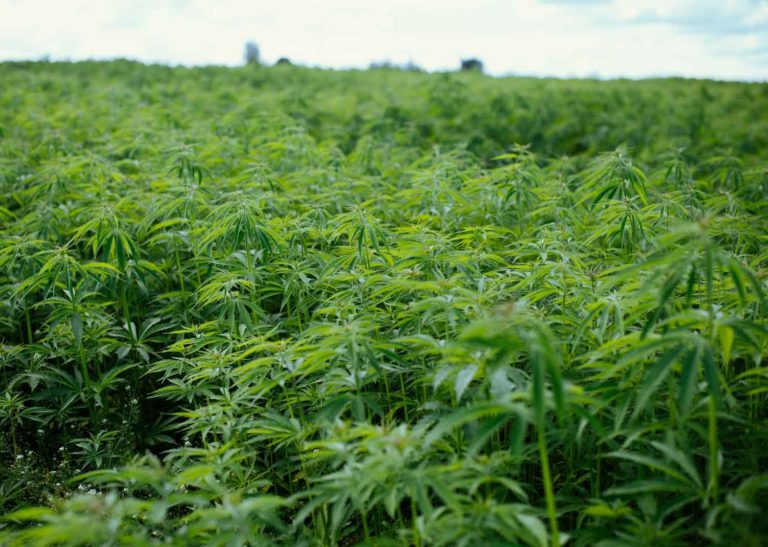
Even though Oklahoma passed one of the most flexible medical cannabis programs in the country, it doesn’t leave them exempt from an illicit or illegal market. Question 788, the Medical Marijuana Legalization Initiative, received voter approval in June 2018. The state distributed licenses shortly after Question 788’s passage and legal sales began in December of 2018. After nearly three years of legality, illicit roadblocks are popping up more and hindering the overall success of the Oklahoma medical cannabis program.
Oklahoma Medical Cannabis Program
Currently, there are over 11,000 businesses in operation, and they include:
- 7,850 growers,
- 2,264 dispensaries,
- 1,402 processors,
- 81 transporters,
- 25 laboratories,
- 10 waste disposal businesses,
- Two researchers,
- One educator
Additionally, around ten percent of Oklahoma’s population is registered for medical cannabis through the state’s legal program. These large numbers aren’t the only thing that sets the Oklahoma medical cannabis program apart. The state also offers:
- No state license caps,
- No specific qualifying medical conditions,
- Low barriers for entry into the market,
- Consumption permitted anywhere tobacco smoking is allowed
To be sure, Oklahoma citizens have fought for these changes and lower limits. “They’ve taken the glass ceiling of how high a medical cannabis program can go, and they’ve broken it, and then exceeded it,” said Andrew Livingston, director of economics at a Denver-based law firm. “Oklahoma has the most open medical cannabis system in the country.”
Illicit Market
However, these loose barriers which encourage local farmers and users have also led to an illicit and illegal cannabis growing market. There are some farmers growing without a license. Illicit growers will begin operations inconspicuously among thousands of licenses growers in the state.
But these operations are busted relatively quickly by the Oklahoma Bureau of Narcotics (OBN). They have shut down more than two dozen illegal operations like this between April and June of this year alone. They also receive 30 to 100 phone tips a week on suspicious farms. Regardless, it isn’t always so easy to find the illicit growers.
According to the Oklahoma medical cannabis program, 75 percent of ownership must be held by someone who has lived in the state for at least two years. This has led to farms adopting “ghost owners”. These individuals sometimes put their names on hundreds of licenses when they don’t know anything about the farm itself and collect a check once a month. These operations are harder to find and bust.
State Response
Mark Woodward is the public information officer at OBN. He spoke with Cannabis Business Times about the struggle the office is going through.
“(Illicit growers are) working with local attorneys and others who can pop up fraudulent paperwork to find somebody who will agree to be the quote-unquote ‘owner,'” he says. “They’re having these ghost owners put their names on sometimes over a hundred licenses. When in reality, they know nothing about the farm, other than they go to the mailbox once a month for a $5,000 check.
“So that fraudulent business structure is set up, so they get their license, and they cross every ‘T’ and every ‘I’ so that they don’t draw attention to themselves. But a hundred percent of their product is being moved off the farm in box trucks in the middle of the night to the East coast and the money is laundered all over the U.S. and outside of the U.S.”
All of this work has taken several agents at OBN several hours of working together to peel back the layers of fraud to get to the root of the problem. However, agents are working on other drug and fraud cases involving fentanyl, cocaine, heroine, and prescription drugs. Agents cover all aspects of the OBN. They can’t focus specifically on grower fraud and the illicit cannabis market. Agent Woodward says the OBN needs to start a full-time unit of 20 to 30 agents located across the state who will work with sheriffs and police departments.
Public Response
Corbin Wyatt, owner of Oklahoma-based Likewise Cannabis, a vertically integrated cannabis company, also spoke with Cannabis Business Times.
“We’ll be in a room of hundred people saying, ‘We’ve got our life savings invested and we can’t keep our head above water because we’re having to test our batches, follow all the pesticides and regulations and pay our workers fair wages, which is keeping our prices much higher than the illicit market. We just can’t compete,'” he says. “And again, those are their words, not ours. They’re begging for help.”
Recently, US Senator James Inhofe requested $4 million to help create a full time enforcement program Agent Woodard spoke about. No response has been made yet in regards to Senator Inhofe’s request.
It seems Oklahoma, despite being a large medical cannabis operating state, is still struggling to keep up with the illicit market. Other states, like Mississippi, are looking to Oklahoma and other states to base their program off of.
Make sure to check back for more cannabis and hemp related news.